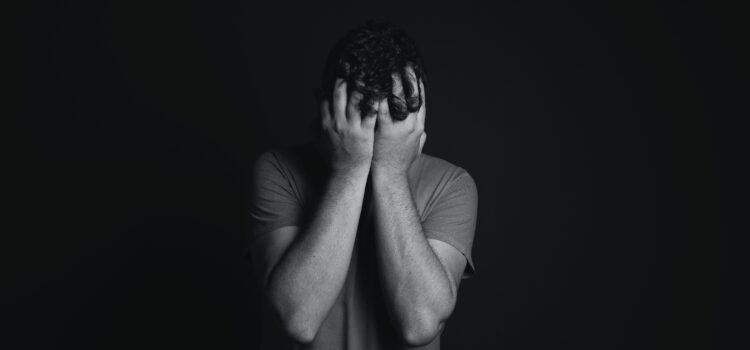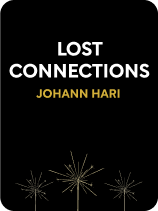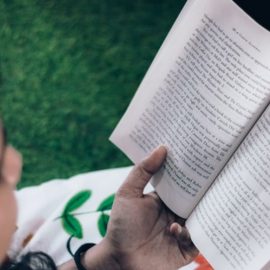

This article is an excerpt from the Shortform book guide to "Lost Connections" by Johann Hari. Shortform has the world's best summaries and analyses of books you should be reading.
Like this article? Sign up for a free trial here .
What is the relationship between childhood trauma and depression? How can the effects of childhood trauma be reversed?
Childhood trauma and depression are interrelated because trauma can create a deep emotional wound that has a lasting impact on the life of the victim. Trauma can lead to a deep sense of guilt that triggers depression. It can be confronted by acknowledging your emotional scars, and recognizing that you never deserved what happened to you.
Read on to learn more about how childhood trauma and depression are interrelated.
Disconnection From Past Trauma
It may seem counterintuitive that being disconnected from past trauma could cause depression: If you’re not thinking about the terrible things that happened to you, shouldn’t you be happy? However, trauma affects us in powerful ways, many of which operate subconsciously—in other words, just because you’re not thinking or talking about the trauma doesn’t mean it’s not still impacting your life and contributing to depression, even decades later. Childhood trauma is one of the most reliable predictors of adult depression, and fully processing that trauma by facing it head-on is a powerful way to begin healing depression.
Scientists still don’t fully understand the relationship between childhood trauma and depression, but Hari has his own theory based on the fact that people who experienced trauma as a child often irrationally blame themselves for what happened. He argues that this impulse starts out as a coping mechanism—when kids experience trauma, blaming themselves is a way of taking back control. In the short term, that sense of control is a relief—especially when the alternative is feeling totally powerless in a big, scary world—but in the long run, the false idea that the trauma was their fault and that they deserved what happened creates a deep emotional wound.
How the Adverse Childhood Experiences (ACE) Study Demonstrates the Relationship Between Childhood Trauma and Depression
A study that demonstrates the link between childhood trauma and depression is the Adverse Childhood Experiences (ACE) Study, a landmark piece of research on the connection between childhood trauma and adult outcomes (like depression, obesity, cancer, and missed work days). The original study surveyed seventeen thousand people on their experience with 10 categories of childhood trauma:
- Emotional abuse
- Sexual abuse
- Physical abuse
- Emotional neglect
- Physical neglect
- Mental illness
- Substance abuse
- Divorce
- Domestic violence
- Having an incarcerated family member
The ACE Study has been replicated all over the world, and the results are always the same: There is a strong positive correlation between adverse childhood trauma and depression in adulthood. In other words, people who had experienced ACEs were more likely to suffer from all kinds of physical, mental, and behavioral problems than people who had no ACEs. For depression and suicidality outcomes specifically, the data from the ACE study is shocking: people with seven ACEs are 3,100% more likely to attempt suicide than people with no ACEs.
Moreover, the relationship between ACEs and health problems shows a dose-response effect—the more ACEs someone had, the more likely they were to experience negative health outcomes as an adult. For example, a person with five categories of ACEs is more likely to experience depression as an adult than someone with two categories of ACEs, just like someone who smokes two packs of cigarettes a day is more likely to develop lung cancer than someone who only smokes occasionally.
The dose-response relationship implies that ACEs are at least partly causing these outcomes. In other words, experiencing ACEs causes depression; and the more ACEs you experience, the higher your risk of being depressed as an adult. Think of it this way: If one sleeping pill makes you feel drowsy, but two sleeping pills knock you out for hours, that’s a good sign that the pills actually work the way they’re supposed to. If they were a placebo, there might be a small difference in the effects of taking one pill versus two, but not nearly to the same degree.
Rewriting the Trauma Story
Knowledge of the relationship between childhood trauma and depression is an especially difficult one for people who have believed the serotonin story their whole lives. It’s much easier to say, “I have a chemical imbalance in my brain that I treat with medication” than it is to say, “Terrible things happened to me as a child, and I’m really struggling because of them.” Moreover, in the serotonin story, there is always the gleaming hope that the right combination of medications will take the pain away entirely—and abandoning that story means abandoning the hope that there is a simple, painless solution.
Facing childhood trauma takes immense courage. It requires not only acknowledging what happened, but rewriting the story to reflect the truth: If adults in your life failed to keep you safe, that is not your fault, and you did not deserve what happened. Childhood trauma leaves powerful wounds that you may have spent a lifetime covering up, and facing that trauma can be terrifying—but finding the courage to address those old wounds is the only way to truly heal this disconnection and the depression it causes.

———End of Preview———
Like what you just read? Read the rest of the world's best book summary and analysis of Johann Hari's "Lost Connections" at Shortform .
Here's what you'll find in our full Lost Connections summary :
- The psychological and social factors that contribute to mental illness
- The history of antidepressants and the science behind them
- Why Amish people hardly ever get depressed






